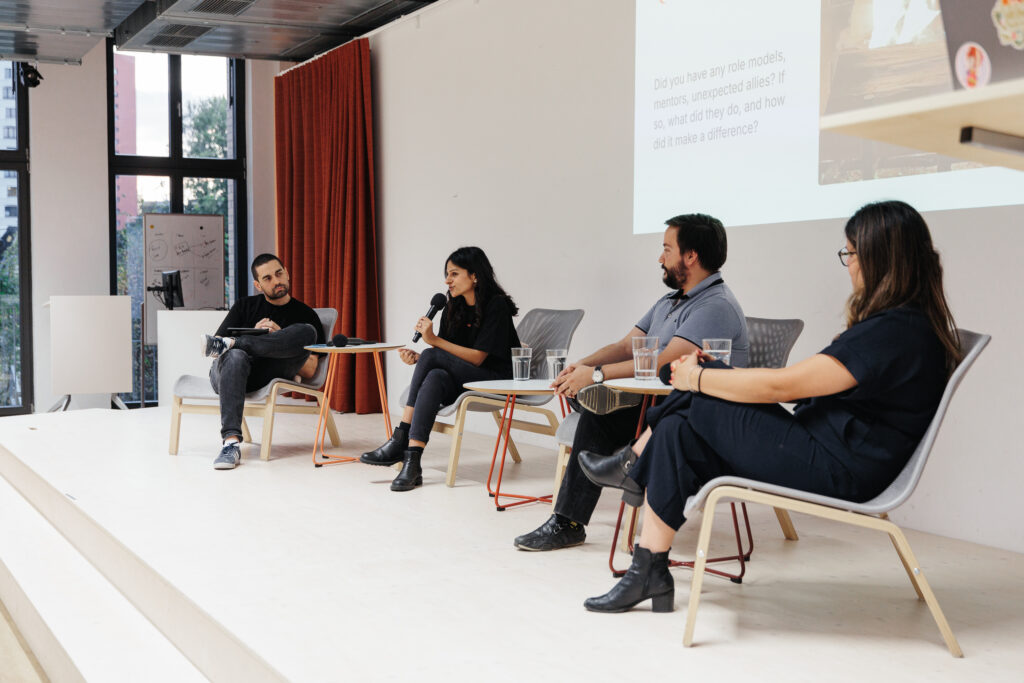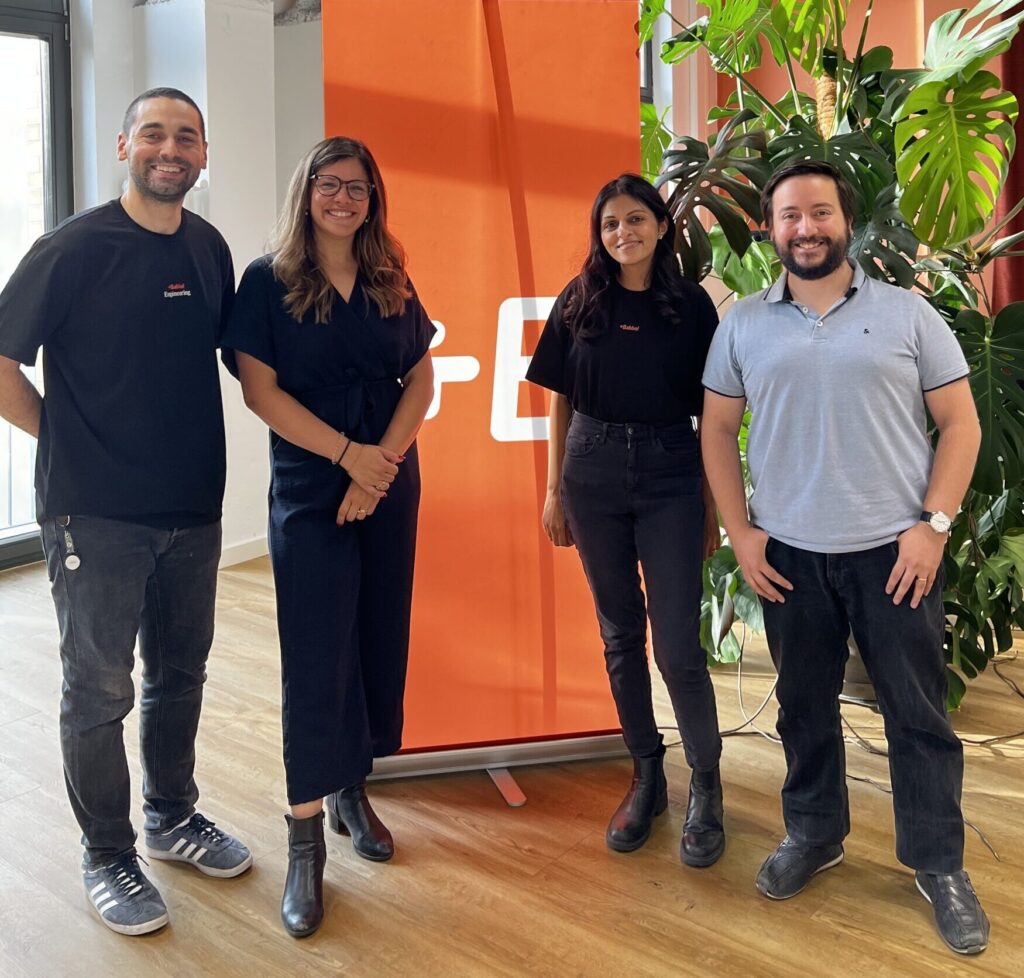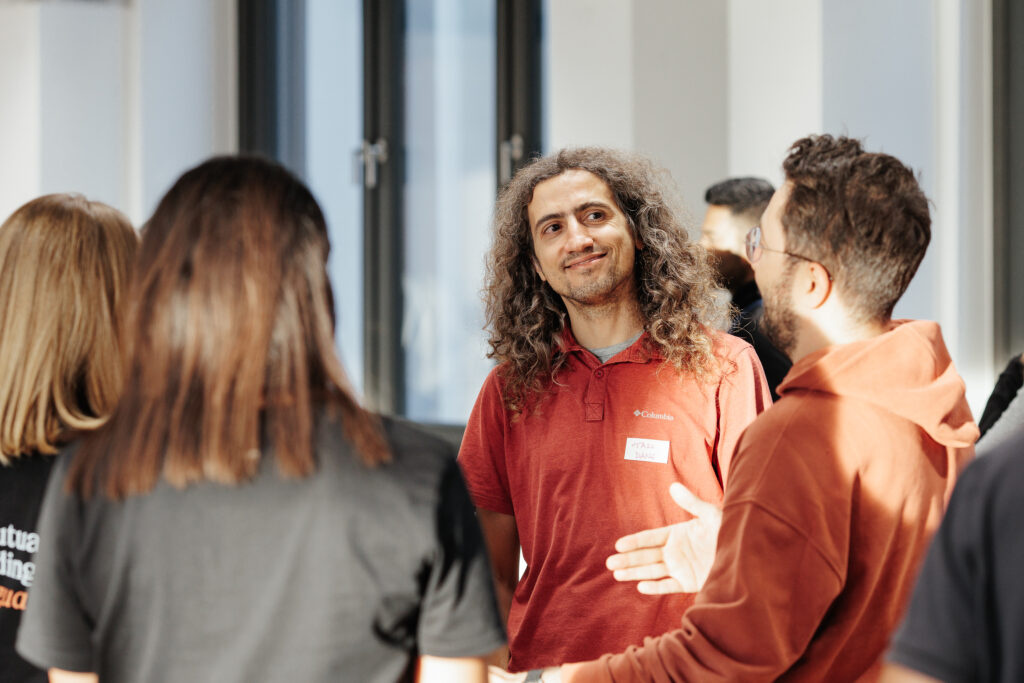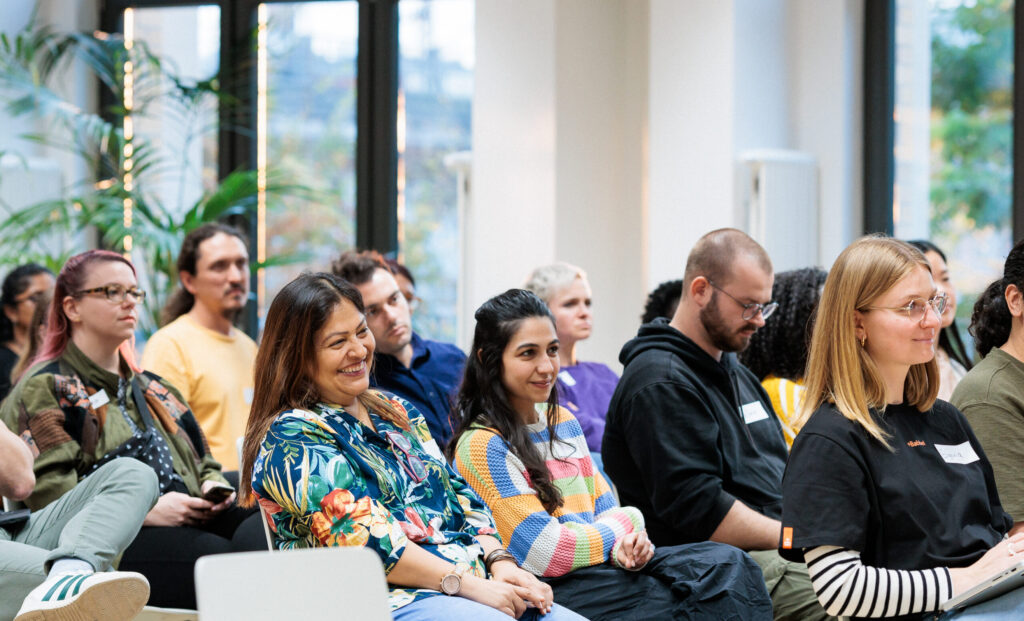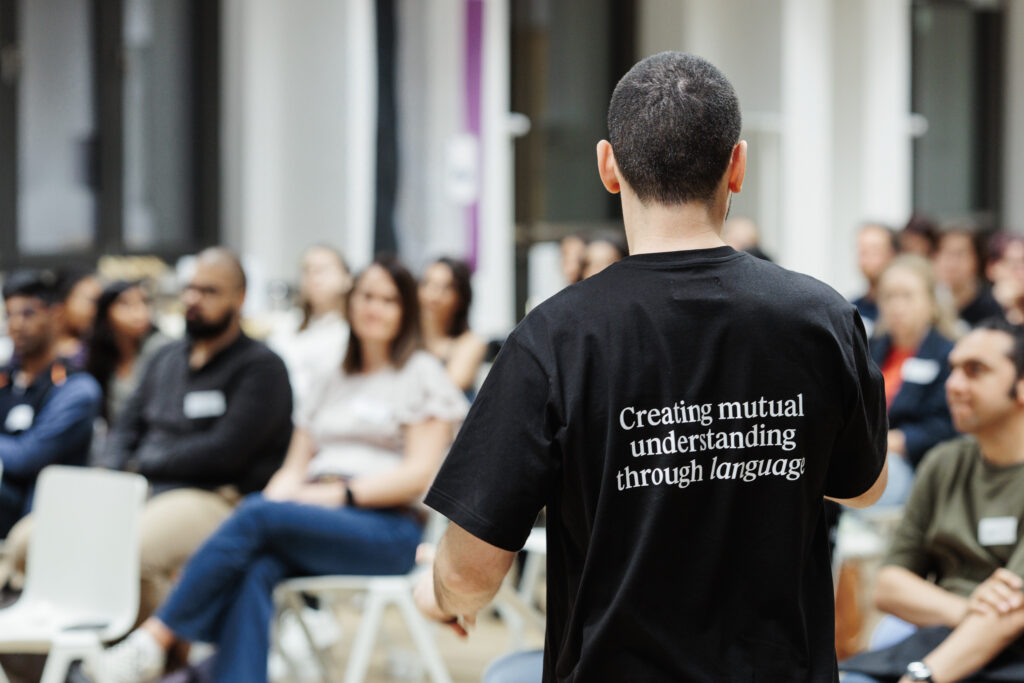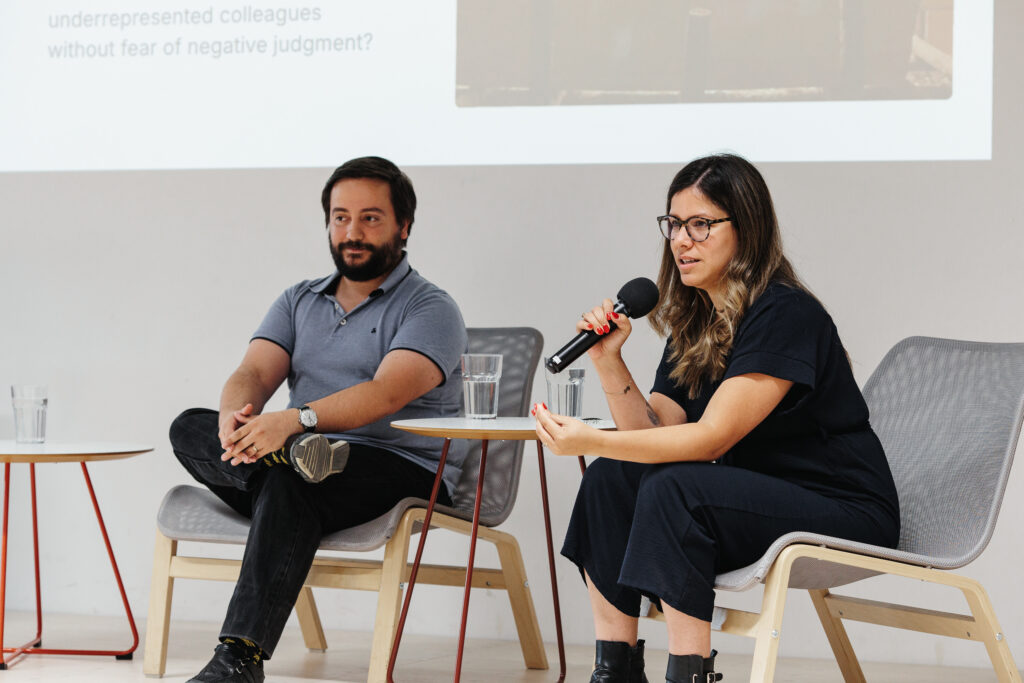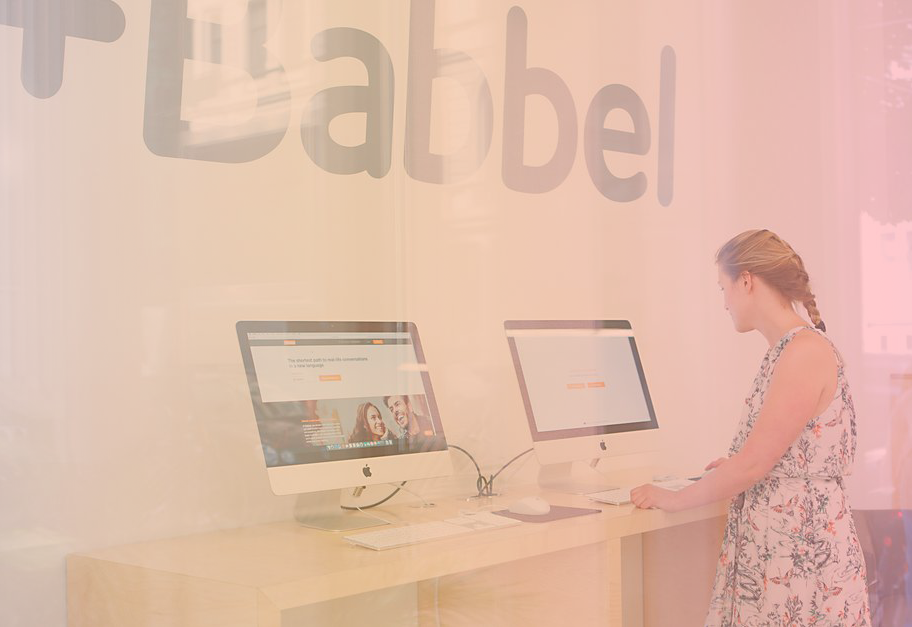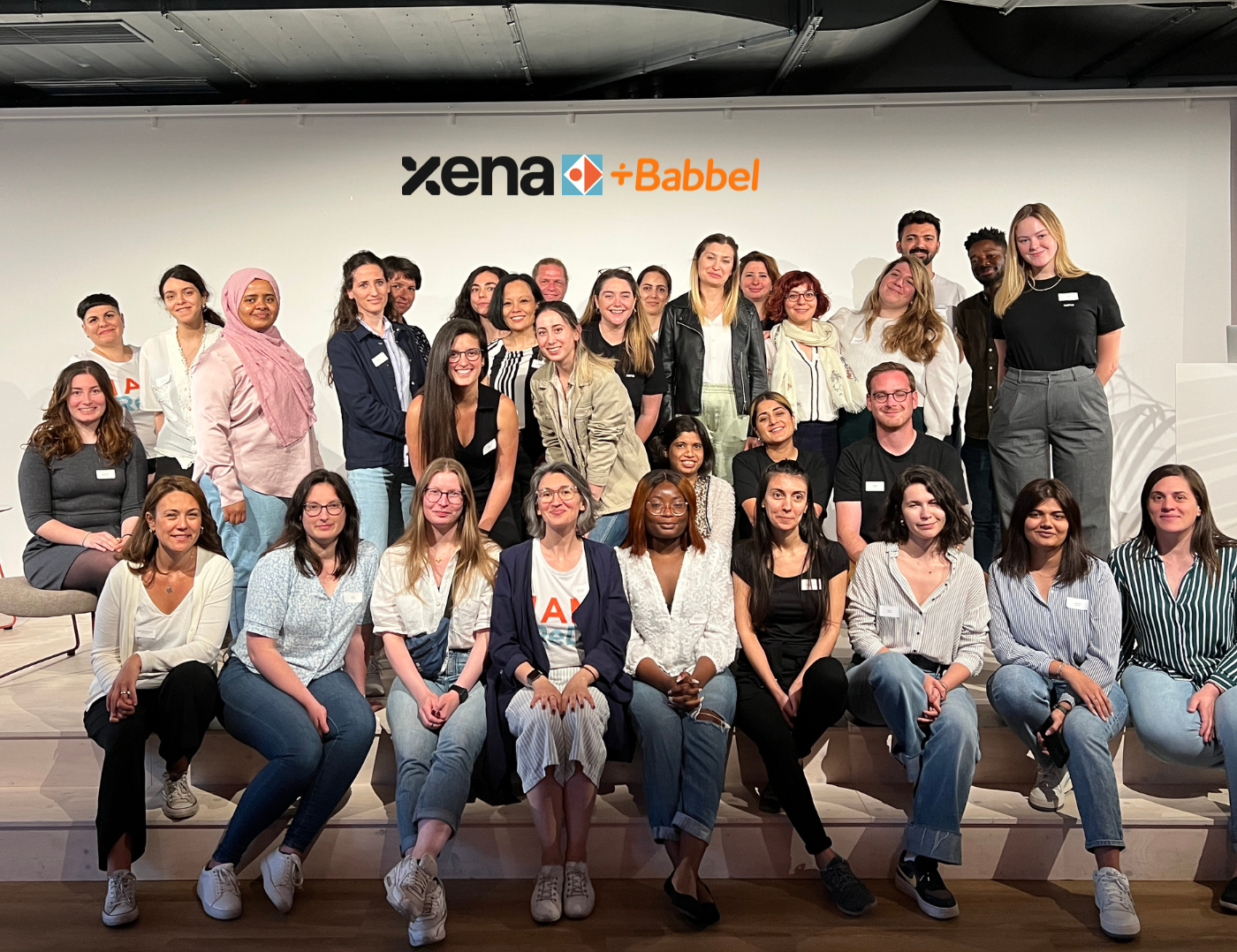4 min. read
Engineering Futures
Fireside Chat Recap – How to Empower Leaders in Tech?
Leadership Empowerment with a DEIB Focus
On 12th September, we joined forces with Babbel to host a fireside chat in their Berlin office featuring tech leaders from Miro, Urban Sports Club, and Babbel. The event centred on career growth in the tech industry through the lens of Diversity, Equity, Inclusion, and Belonging (DEIB), offering actionable insights on leadership empowerment, inclusivity, and dismantling barriers for underrepresented groups, especially women in tech.
Key to the discussion was the fact that achieving genuine inclusion requires proactive efforts from majority groups, not just those from underrepresented backgrounds.
As leaders, it’s crucial to educate and mobilise all groups towards building an equitable workplace, sharing the responsibility of change.
Meet the Experts
(from left to right)
Ben Kadel (Moderator) – Principal Platform Engineer for Android at Babbel
Ben facilitated the discussion, prompting the panellists to share their personal experiences and insights.
Kate Castellano – Head of Engineering (Members & Corporate) at Urban Sports Club
Kate discussed strategies for fostering inclusivity at all levels of team development and ensuring diverse perspectives are valued.
Serena Hathi – Interim Engineering Manager at Babbel
Serena shared her experience of overcoming barriers as a woman in tech, providing actionable steps for others to do the same.
Hernán Magrini – Head of Engineering at Miro
Hernán offered insights into how he has embedded allyship into his leadership practices to cultivate an inclusive work environment.
1. Embracing Discomfort to Become a True Ally
True allyship extends beyond passive participation; it demands an active commitment to addressing the challenges faced by underrepresented groups. Hernán shared his realisation that active listening isn’t enough if the burden of solving problems is still placed on those experiencing them.
He emphasised that the role of an ally is to share the load, not add to it.
Kate expanded on this, stressing the importance of embracing discomfort when discussing DEIB issues. She noted that real change isn’t painless, and majority groups must actively show up for underrepresented colleagues, using their privilege to amplify their voices and advocate for equity.
What Can You Do?
– Reflect on how your well-meaning actions might unintentionally place the burden on underrepresented individuals. Regularly ask for feedback on how your actions impact underrepresented colleagues and be open to constructive criticism.
– Use your influence to elevate others and share the responsibility for driving change.
– Engage in ongoing diversity and inclusion training that focuses on active listening and empathy.
2. Creating Safe Spaces for Growth and Mistakes
For Serena, community building plays a vital role in combating isolation experienced by underrepresented groups. She underscored the importance of creating environments where people feel safe to express themselves, take risks, and even make mistakes without fear of judgement.
Safe spaces are also critical for growth and learning. Kate highlighted how these spaces allow people to be vulnerable, fostering resilience and collaboration.
Allies can actively contribute by facilitating these environments, which encourages open dialogue and supports systemic change.
What Can You Do?
– Create inclusive spaces where everyone feels comfortable taking risks and sharing their thoughts.
– Build communities where underrepresented groups can connect and support each other.
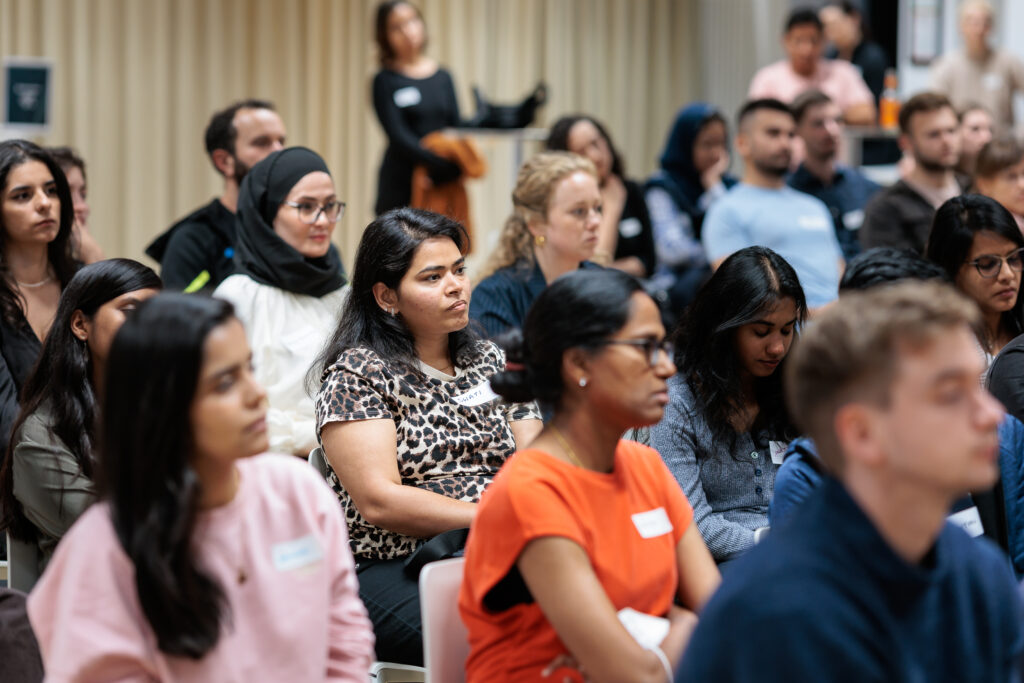
3. Addressing Systemic Biases in Leadership
Both Serena and Hernán discussed the presence of organisational biases that hinder the progress of underrepresented groups. These biases manifest in performance reviews, project assignments, and daily interactions. For example, “glue work” – the unseen but essential tasks like note-taking and meeting organisation – often falls disproportionately on women and minorities, going unrecognised in performance evaluations.
Kate reinforced the need to reform performance reviews to value diverse contributions beyond technical skills, such as teamwork and leadership. Hernán suggested implementing structured processes to ensure fair project distribution and visibility for all team members.
What Can You Do?
– Implement fair processes for assigning tasks, recognising all types of contributions.
– Broaden performance reviews to include a range of competencies, not just technical achievements.
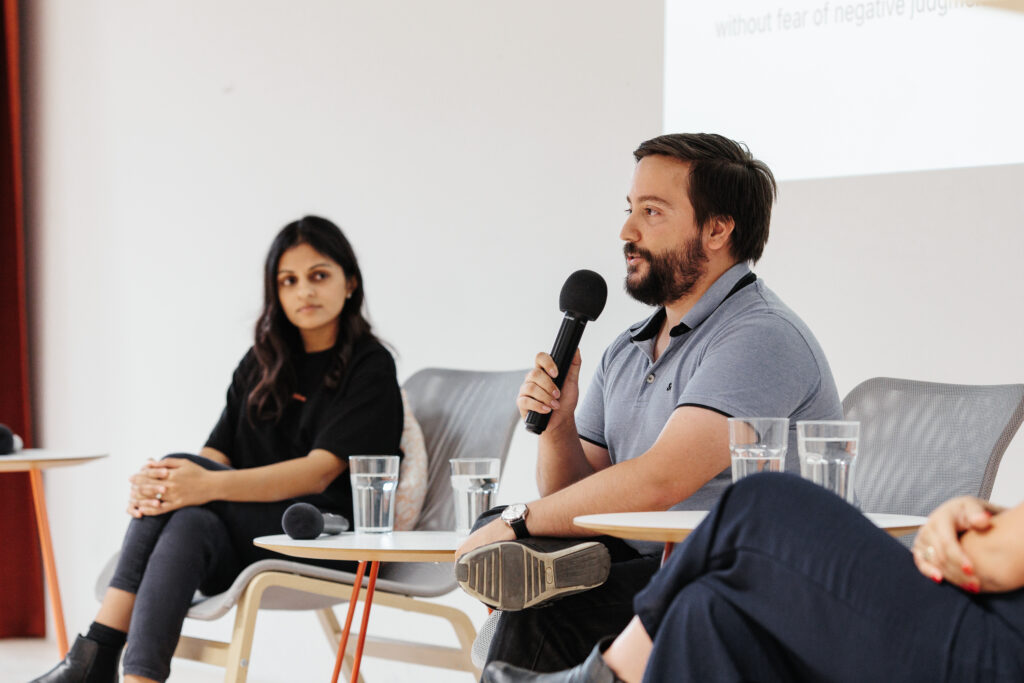
4. Improving Hiring and Talent Development Practices
Increasing diverse representation in leadership requires a thorough review of hiring practices. Job descriptions should be inclusive, avoiding male-coded language and rigid qualifications.
It’s essential to focus on behaviours that align with the role rather than qualifications that may unintentionally deter candidates from underrepresented backgrounds.
In terms of talent development, fostering diversity in leadership means looking at both internal and external candidates. Serena advocated for better internal talent development, encouraging organisations to assess high performers and provide opportunities for growth.
What Can You Do?
– Review and adapt job descriptions to appeal to diverse candidates.
– Ensure diverse interview panels to provide varied perspectives and a more inclusive hiring process.
– Actively engage in proactive outreach to underrepresented groups during recruitment.
5. The Power of Mentorship and Role Models
Serena and Kate both highlighted the transformative power of mentorship. Serena shared how her mentor helped her transition from a technical role to leadership, not just through technical guidance but by instilling a growth mindset. Kate echoed this, encouraging leaders to embrace authenticity and inspire their teams to bring their true selves to the workplace.
Mentorship not only provides guidance but also helps break down the notion that underrepresented individuals must conform to traditional leadership styles to succeed.
What Can You Do?
– Foster a growth mindset, emphasising that mistakes are part of the learning process.
– Encourage authenticity and create an environment where diverse voices are heard and appreciated.
6. Q&A Insights: Practical Tips
The Q&A session brought to light several practical insights that can be applied in everyday leadership to support underrepresented groups in the workplace.
Navigating Interruptions with Assertiveness
One common challenge discussed was managing interruptions in meetings. It was suggested that handling interruptions with assertiveness, while maintaining respect, is key. A useful approach could be calmly stating, “I’m sorry, but I’m speaking right now. Let’s address your point after I’m done.” This helps to maintain order without escalating tensions. If you’re uncomfortable doing this, enlisting an ally in the room who can intervene on your behalf can be helpful.
Creating a Safe Environment for Personal Circumstances
It’s essential for managers to foster environments where employees feel comfortable discussing personal leaves and career pauses. Open discussions about company policies around extended leaves, performance reviews, and return-to-work plans should be normalised. Proactive engagement with employees about how their return will be managed, including expectations and timelines, is a crucial part of creating an inclusive and supportive workplace.
Internal and External Talent Development
When considering candidates for roles, especially leadership positions, both internal and external talent should be considered. Companies should develop robust processes for assessing and promoting internal talent to ensure it is diverse and offers opportunities for all team members. Proactive outreach to underrepresented groups is also essential in external hiring to ensure a diverse talent pipeline.
Finding and Utilising Mentors
The session also highlighted the importance of mentorship. Serena and Kate both suggested that individuals actively seek out mentors, even reaching out to high-profile professionals who might seem too busy. Communities and organisations, such as Code Bar, can also provide valuable mentorship opportunities, particularly for individuals from underrepresented backgrounds.
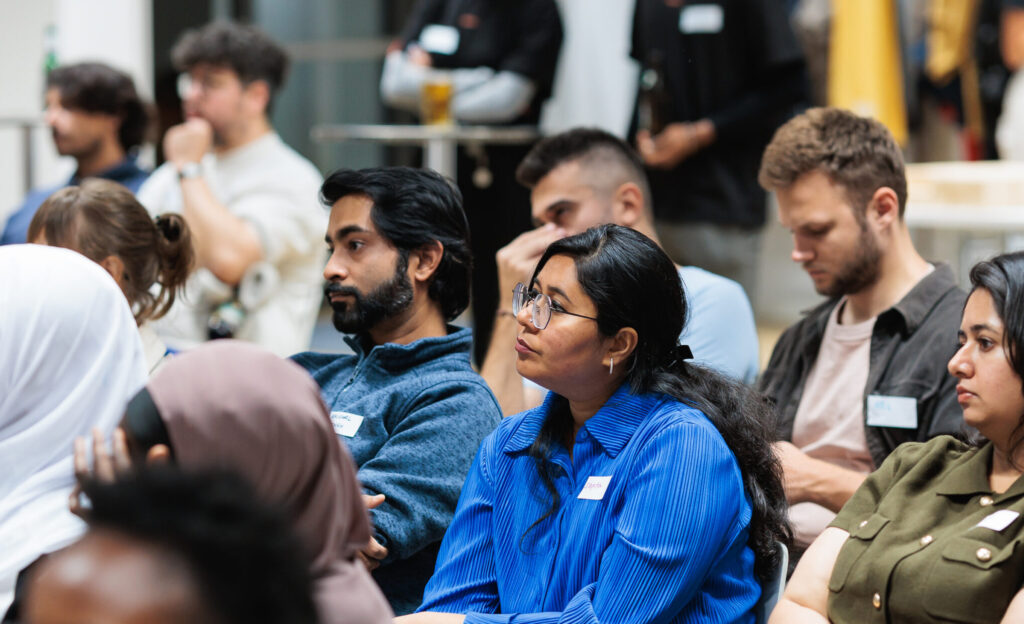
Fostering Leadership for an Inclusive Future
True change demands that we move beyond passive participation and step into the discomfort that comes with addressing systemic biases. It’s about creating safe spaces, valuing all contributions, and actively sharing the load to support underrepresented colleagues.
Only through collective effort, continuous learning, and proactive support can we foster a workplace culture where diversity thrives and leadership empowers all.
